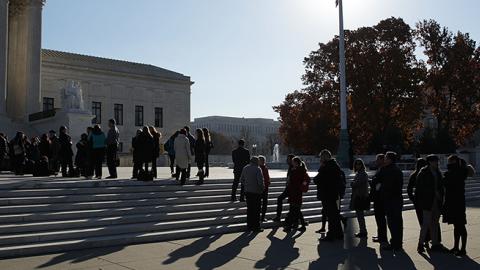Legal analysts claim that Carpenter v. United States, argued earlier this week before the Supreme Court, is one of the most important Fourth Amendment cases in a decade. The Court has been asked to review whether the government could rely on cell phone location data obtained without a warrant to prosecute a person for armed robbery.
In addition to the question of unreasonable search and seizure, the case also has the potential to influence the structure of our Internet economy. Each time a person uses a cell phone or the Internet, vast amounts of digital information are created. Practically all that information is collected and stored by various businesses from wireless carriers to Internet search companies to any of countless other companies that track activities of Internet users. Who owns the digital information?
That question, at least in part, may come before the Supreme Court in Carpenter v. United States.
Mr. Carpenter was convicted in 2013 of a series of armed robberies. Evidence leading to the conviction included historical cell phone location information obtained by the government without a search warrant from a cell phone company. The Court must decide whether such information can be used to prosecute Mr. Carpenter.
The case will provide the Court with an opportunity to clarify when the government requires a warrant to obtain certain digital information from wireless companies.
The Court might decide the case without addressing the intriguing question of the ownership of the digital information. This issue was addressed in an amicus brief before the Court authored by the Competitive Enterprise Institute, the Cato Institute, and the Committee for Justice.
Based on contracts between consumers and the wireless carrier, the amicus brief argues that Mr. Carpenter owns the digital information stored and controlled by the wireless company. Perhaps, but it is a peculiar form of ownership at best.
Even if he knew of the digital information, Mr. Carpenter could not meaningfully exercise any form of ownership or control over it. He could not move its storage location, or likely even compel the wireless carrier to disclose the full extent and details of the geographic location information held by the carrier. He could not require the wireless carrier to destroy this information. He could not sell the information, nor could he benefit from the sale of the wireless carrier that held his digital information to another.
Suppose, if instead of obtaining the geographic location information from a heavily regulated wireless carrier that had a contract with Mr. Carpenter, the government had collected the same or similar information from an unregulated firm without a contractual relationship with Mr. Carpenter. Would a government agency require a warrant to collect such information? Would Mr. Carpenter’s Fourth Amendment protections be any different?
This hypothetical scenario is far from remote. With GPS data, online companies can and do track the geographic location of individuals, selling them geographically targeted advertisements. When businesses, political campaigns, alumni associations, or any other group wants to find information about an individual, they go to online companies, not heavily regulated wireless companies. The government might do so as well.
We live in a world in which our activities, location, and even thoughts are being tracked, synthesized, and used for purposes about which we are completely unaware. We benefit from much, but not all, of the information about us generated by online companies.
Some observers see privacy rights at stake. But clearly defined property rights are as much at stake as well. The default legal position today in the United States is that the online companies own the boundless consumer information they control and use. That default position may change if the property rights in personal information change.
The struggle for the ownership and control of information about each of us will be one of the great legal and economic issues of the current generation. Carpenter v. United States is one of the first major cases to frame that struggle. It will not be the last.
Like most Americans, Mr. Carpenter probably had little knowledge of the existence of the digital information, or that it had been collected and stored by his wireless carrier. He likely had even less familiarity with the fine print of the contract language.















